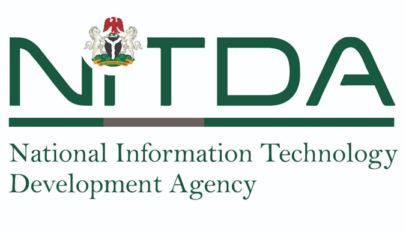Nigeria has long faced significant challenges in controlling infectious diseases, from malaria and tuberculosis to the recent COVID-19 pandemic. However, the country is now leveraging technology and innovation to improve disease surveillance, prevention, and treatment. Through a combination of digital tools, mobile health (mHealth) applications, and advanced research, Nigeria is making strides in its fight against infectious diseases.
Technology-Driven Disease Surveillance
Effective disease surveillance is critical for controlling the spread of infectious diseases. In Nigeria, technology is playing a pivotal role in enhancing surveillance capabilities. Digital platforms such as the Nigeria Centre for Disease Control’s (NCDC) Surveillance Outbreak Response Management and Analysis System (SORMAS) are being used to collect, analyze, and share real-time data on disease outbreaks.
SORMAS allows healthcare workers to report cases, track the spread of diseases, and coordinate response efforts across different regions. This system was instrumental in Nigeria’s response to the COVID-19 pandemic, enabling timely detection of cases and effective contact tracing. By leveraging such technologies, Nigeria is improving its ability to monitor and respond to infectious disease outbreaks, ultimately reducing the impact on public health.
Mobile Health Applications
Mobile health (mHealth) applications are another key component of Nigeria’s strategy to combat infectious diseases. These applications provide health information, facilitate communication between patients and healthcare providers, and support the management of chronic conditions. For example, mHealth platforms are used to deliver information on malaria prevention, distribute reminders for vaccination schedules, and provide teleconsultations for patients in remote areas.
In the fight against HIV/AIDS, mHealth applications have been used to support treatment adherence by sending medication reminders to patients and enabling remote monitoring by healthcare providers. This has been particularly effective in improving treatment outcomes and reducing the transmission of the virus.
Additionally, mHealth applications are being used to collect data from community health workers in rural areas, helping to identify disease hotspots and target interventions more effectively. By harnessing the power of mobile technology, Nigeria is expanding access to healthcare services and improving disease prevention and control.
Innovation in Vaccine Development and Delivery
Innovation is also driving progress in vaccine development and delivery in Nigeria. The country has been at the forefront of efforts to develop and distribute vaccines for diseases such as polio, meningitis, and yellow fever. Advances in vaccine technology, including the use of genetic engineering and novel delivery methods, are enhancing the efficacy and reach of vaccination campaigns.
For instance, the introduction of the meningitis A vaccine in the “Meningitis Belt” of Nigeria has led to a dramatic reduction in cases of the disease. The vaccine was developed through a collaboration between international health organizations, local researchers, and vaccine manufacturers, demonstrating the importance of innovation and partnership in combating infectious diseases.
In response to the COVID-19 pandemic, Nigeria has also been involved in global efforts to develop and distribute vaccines. The country participated in the COVAX initiative, which aims to ensure equitable access to COVID-19 vaccines worldwide. Additionally, Nigerian scientists and researchers are exploring the development of locally-produced vaccines, which could enhance the country’s capacity to respond to future outbreaks.
Challenges and the Path Forward
Despite the progress made, Nigeria faces several challenges in its fight against infectious diseases. These include inadequate healthcare infrastructure, limited access to clean water and sanitation, and ongoing issues with vaccine hesitancy. Addressing these challenges will require sustained investment in healthcare, public health education, and community engagement.
Strengthening partnerships between the government, private sector, and international organizations will also be crucial for advancing innovation and technology in the fight against infectious diseases. By fostering collaboration and sharing knowledge, Nigeria can continue to build on its successes and overcome the challenges ahead.
In conclusion, technology and innovation are playing a critical role in Nigeria’s fight against infectious diseases. From improving disease surveillance to enhancing vaccine delivery, these advancements are helping to protect public health and save lives. As Nigeria continues to embrace digital tools and innovative approaches, it is well-positioned to make further progress in controlling infectious diseases and improving health outcomes for all its citizens.





































